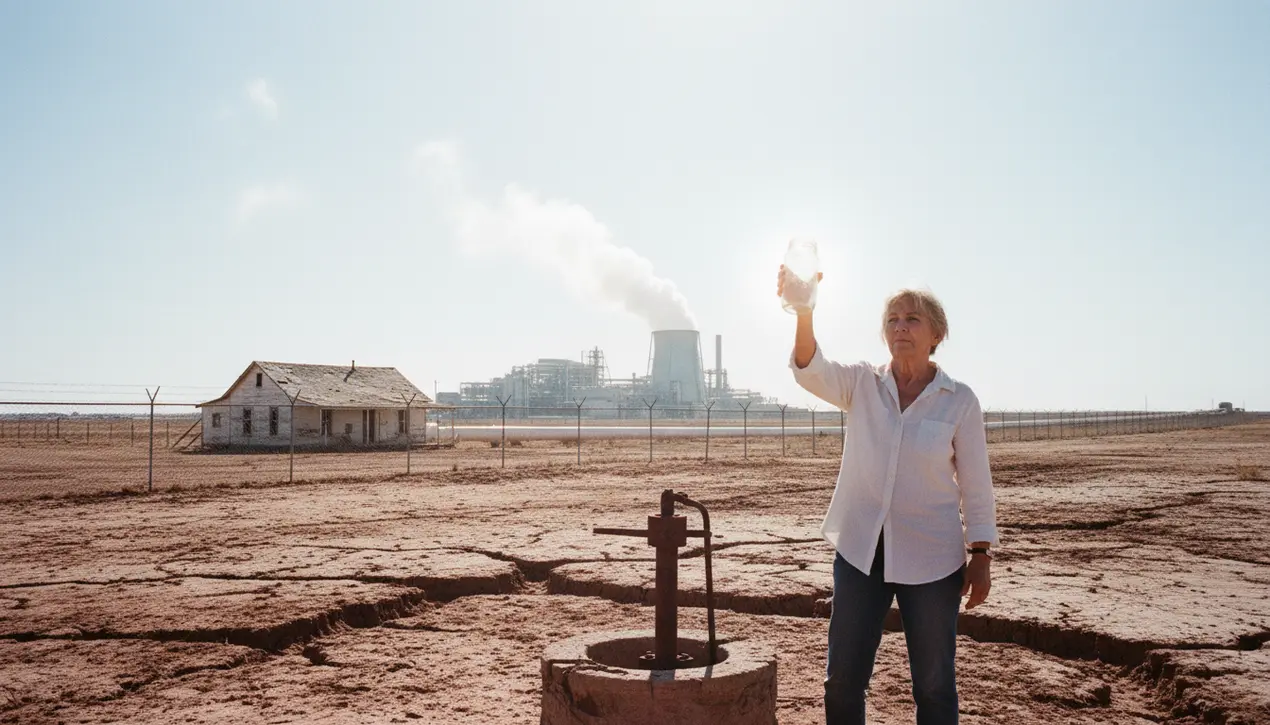
PoliticslegislationEnvironmental Laws
Texas Water Rights Conflict Between Residents and Industry.
RA
Rachel Adams
2 hours ago7 min read
The stark landscape of West Texas, where the earth cracks under a relentless sun and water is more precious than any mineral, has become the frontline in a deeply existential conflict. Here, the fundamental promise of life—access to clean drinking water—is being systematically transferred from residential wells to the insatiable thirst of heavy industry.As semiconductor plants, data centers, and chemical manufacturers are lured to the state by generous incentives and a permissive regulatory environment, they arrive with a hidden, state-sanctioned claim: priority to the aquifers that have sustained communities for generations. This isn't a sudden drought; it's a engineered scarcity, a quiet re-plumbing of the state’s hydrological future where the rights of a corporation too often outweigh the rights of a homeowner.The legal architecture enabling this is rooted in Texas's unique 'rule of capture' and a byzantine system of water rights that can feel like a relic of a bygone era, now weaponized by modern corporate interests. A rancher in Bastrop County might watch their well level drop precipitously after a new manufacturing facility begins its operations miles away, a silent siphoning that leaves them with muddy water and a sinking feeling of powerlessness.The narrative pushed by industry lobbyists and some state officials is one of economic inevitability—that these water-intensive operations are the price of progress and job creation. Yet, this framing ignores the profound ecological debt being accumulated.The Ogallala Aquifer, a vast but finite underground reservoir that supports much of the Great Plains agriculture, is being depleted at an alarming rate, not just for agriculture but to feed industrial parks. Scientific models from hydrologists at universities like Texas A&M paint a grim picture of aquifer drawdown that could take centuries to replenish, fundamentally altering the region's capacity to support life.Community organizers, often led by women whose families have lived on the land for decades, are fighting back with a fervor born of necessity, packing hearings in Austin and filing lawsuits that challenge the very premise of a water market. They speak not in the language of profit margins, but of legacy, health, and survival—arguing that the privatization of a public trust resource is a moral failure.The consequences extend far beyond dusty towns; this is a microcosm of a global crisis where climate change-induced water stress collides with industrial demand, a preview of battles to come from Chile to China. Without a radical re-evaluation of water as a human right rather than a commodifiable asset, the Texas model threatens to export a blueprint for hydrological inequality, turning the tap into a symbol of the deepening divide between corporate power and community welfare.
#water rights
#industrial use
#Texas
#resource conflict
#drinking water
#featured
Stay Informed. Act Smarter.
Get weekly highlights, major headlines, and expert insights — then put your knowledge to work in our live prediction markets.
Related News
Comments
Loading comments...
© 2025 Outpoll Service LTD. All rights reserved.